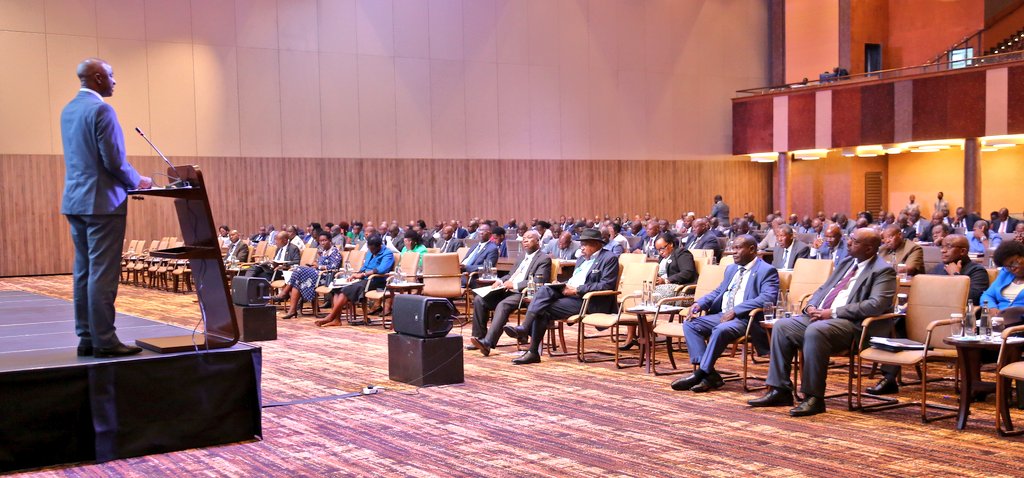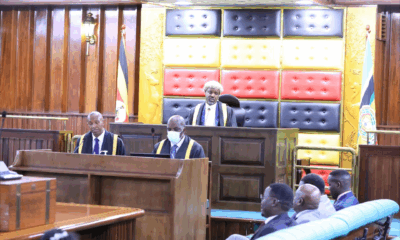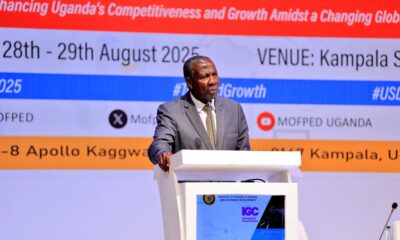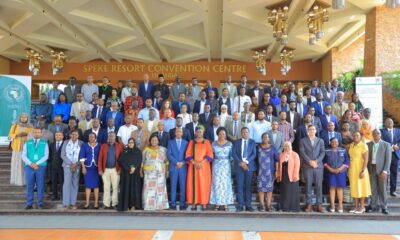Economy
PSST Ggoobi, Nakyobe Warn Accounting Officers Over Corruption, Budget Games in FY 2025/26 Execution
As the government sets its sights on disciplined budget execution for the 2025/26 financial year, the Ministry of Finance has issued a stern warning to Accounting Officers across all government agencies: stop the “budget games”, fight corruption, and deliver services with integrity.
Speaking at a high-level meeting of Accounting Officers held at Speke Resort Munyonyo, Permanent Secretary and Secretary to the Treasury (PSST) Ramathan Ggoobi lamented the growing decline in public servant integrity, blaming much of it on the failure to adhere to the Ethical Code of Conduct.
“The budget process has become one of the avenues for increased corruption in government,” Ggoobi said, pointing out that Human Resource Officers, Procurement Officers, and Accountants are now under increased scrutiny.
Ggoobi revealed that a recent payroll audit by the Office of the Auditor General exposed a host of irregularities, including unauthorised recruitments. Mischarges and irregular payments. Staff paid off the IPPS/HCM systems. Ghost employees on the payroll. Illegal loan deductions. Delays in processing pensions and gratuity
With the full decentralisation of pensions and gratuity processing to individual government votes, Ggoobi made it clear that Accounting Officers are now fully responsible for managing their own payrolls through the Human Capital Management (HCM) system.
In what appeared to be a response to long-standing complaints from local government administrators, Ggoobi announced a significant salary increase for Chief Administrative Officers, City Clerks, and Municipal Clerks—from UGX 1.8 million to UGX 12.75 million monthly. “This aims to address pay disparities and improve motivation and service delivery,” Ggoobi explained.
He reaffirmed the government’s commitment to its fiscal consolidation plan, with a strategic focus on enhancing revenue collection, controlling public expenditure, and reducing the fiscal deficit.
Ggoobi also lifted the lid on manipulative tactics by some Ministries, Departments, and Agencies (MDAs) during the budgeting process. These include: “Padding Play” – inflating budget requests far beyond actual needs. “Crisis Card” – claiming looming public catastrophes if inflated budgets are not approved. “We’ve instructed our budget analysts to dig deeper, stamp out these schemes, and restore discipline in planning,” he said.
Presiding over the meeting, Lucy Nakyobe, Head of Public Service and Secretary to Cabinet, echoed similar concerns. She urged Accounting Officers across the board—from central and local governments to missions abroad, public universities, and regional referral hospitals—to uphold high standards of integrity, transparency, efficiency, and accountability. “You must guard against committing the government beyond its means. Say no to domestic arrears. Don’t commit without adequate resources,” Nakyobe warned.
She emphasised that service delivery must be timely, equitable, and consistent with published standards. She also called for expedited project implementation and procurement reforms to reduce bureaucratic delays.
Accounting Officers from Local Governments used the platform to raise their concerns, notably: Weak coordination with central government ministries, affecting service delivery. Inadequate wage bill ceilings that limit the recruitment of essential personnel
The Ministry of Finance committed to engaging further on these issues as it tightens budget controls and demands better outcomes.
With FY 2025/26 underway, the government is doubling down on enforcing financial discipline. From salary enhancements to budget reform, the focus is shifting toward accountability, transparency, and performance. But the warnings are clear—those who fail to adapt may soon find themselves out of step with the national agenda.
Comments



























